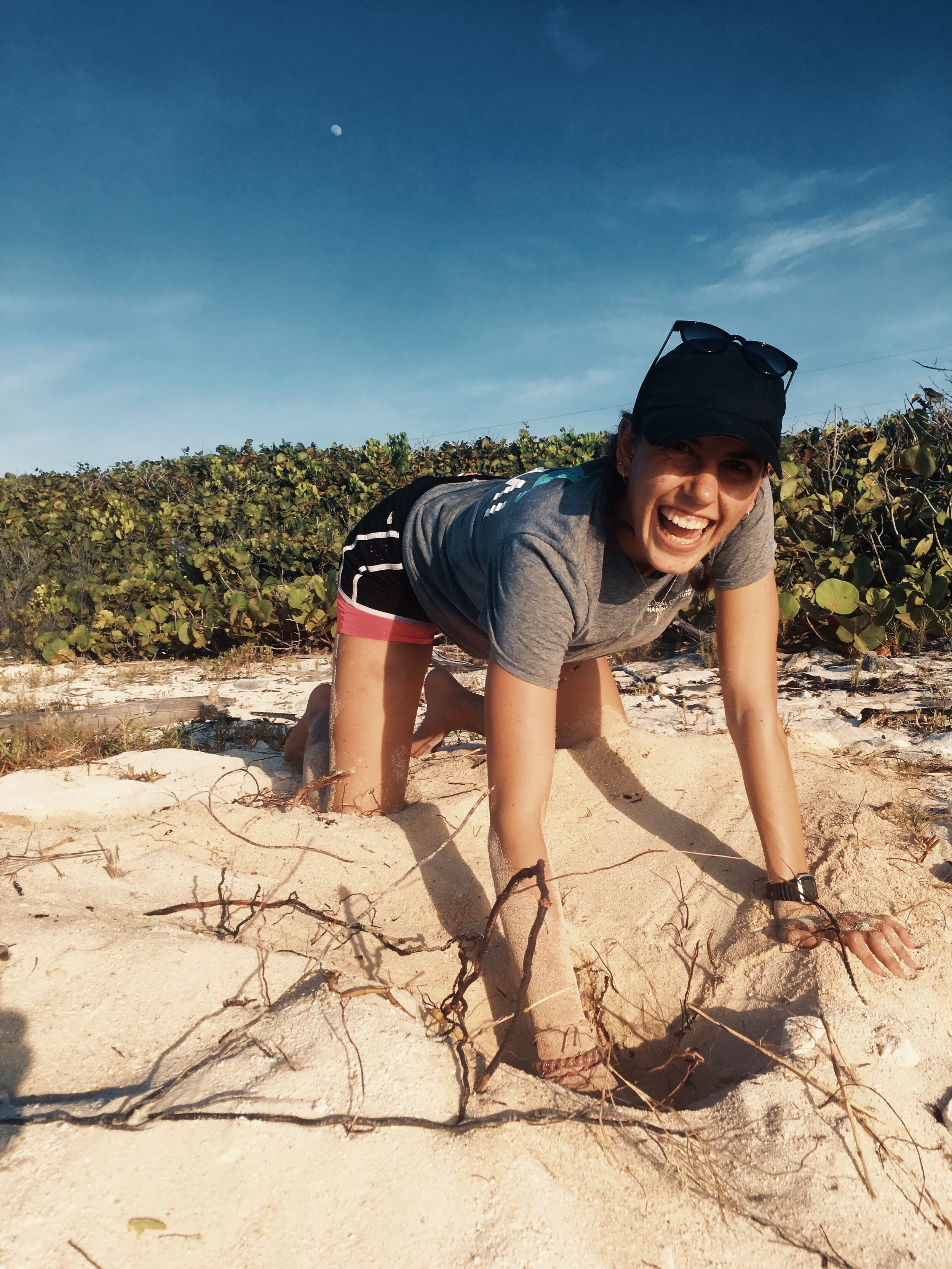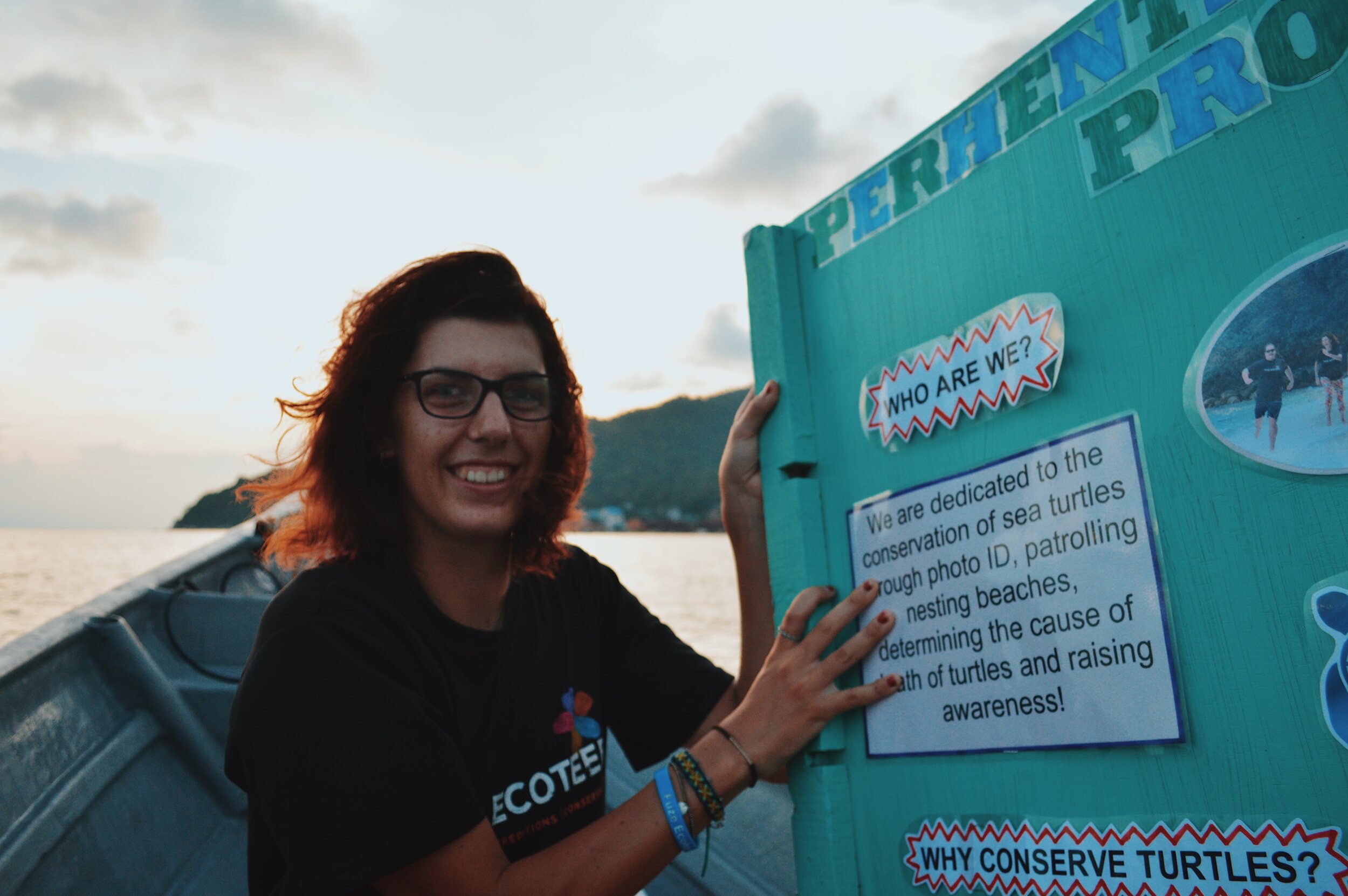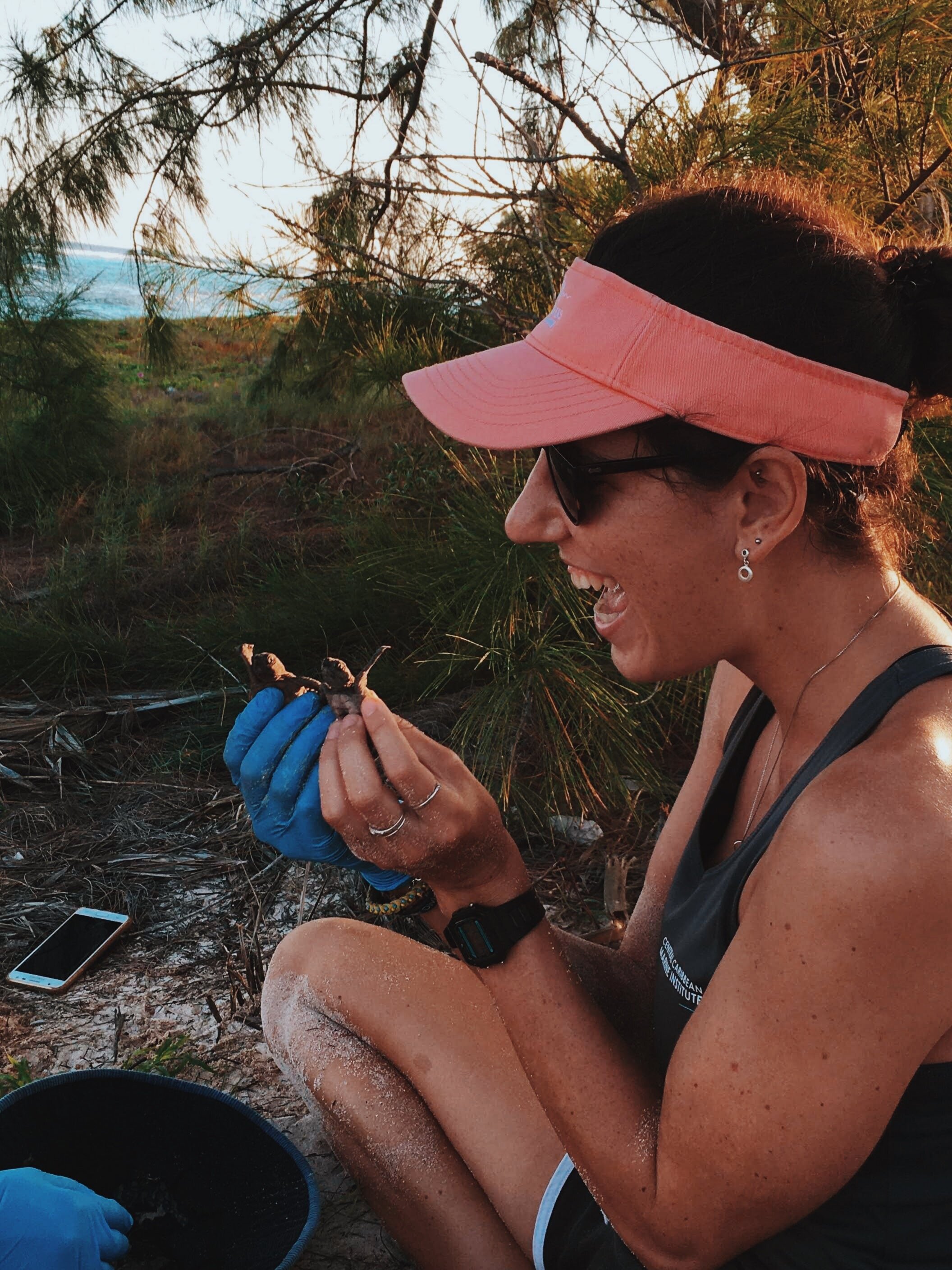Education: An interview with Maisy Fuller
BY STEPHANIE MACDONALD
Meet Maisy Fuller an eclectic Marine Educator based in the Caribbean. Maisy’s passion and drive for marine conservation has led her to a career in education. Her job enables her to inspire others and the wall of thank you notes in her office denotes the impact she has on her students.
Hello Maisy, thank you for chatting with us. Please Can you tell me a little about yourself?
Hi everyone, my name is Maisy, and I currently work as a Marine Educator in the Caribbean where I have been based for nearly two years. Originally from the UK, I have been lucky enough to have worked all over the world at various conservation projects as both a researcher and educator.
I am highly passionate about conserving our environment and reducing the anthropogenic threats it currently faces. I believe the only way we can do this is by educating one another and working together towards a brighter future, which is why I love working in marine education!
You’ve built your life around the ocean. What drew you to it in the first place?
From a young age, I have been captivated with nature and grew up dreaming of crazy adventures in the wilderness. Holidays were spent running through forests, building dens, climbing trees and searching for any new creature that I hadn't seen before. The draw to the natural world has always been so strong, and I never feel more at peace than I do when I am outside connecting with nature. But how does a young girl running through muddy forests in the UK end up dedicating her life to the ocean? When I was younger, if I wasn't outside exploring, then you would find me splashing about in a swimming pool, and as a competitive swimmer, I probably spent more time in the water than dry. Swimming brings me the same peace and tranquillity that connecting with nature does and it was only a matter of time before these two merged and created my drive to become a marine biologist. Today, I still feel compelled to explore the ocean and unlock its secrets, just like the young girl who dreamt of crazy adventures in the wilderness.
Describe the path you took to where you are now. Have you always wanted to be a marine educator?
My journey to becoming a marine educator started when I studied Marine Biology at the University of Southampton. During the summer break after the first year, I volunteered with a turtle nesting project in Greece, which solidified three things to me. 1) I wanted to work in marine conservation, 2) I loved living in the middle of nowhere with no modern luxuries and, 3) turtles are the most amazing creature on this planet. In the following four years, I graduated from university and continued my passion for all things turtle and worked with turtle conservation projects in Australia, Panama and Malaysia. However, as is the nature of marine conservation, contracts were short, there was no pay, and I needed to build up my skill set to become more attractive to potential employees. To do this, I took a job in the Philippines, which focussed on establishing MPAs by training volunteers to conduct scientific surveys. This job allowed me to expand my knowledge of coral reefs, improve my scientific survey skills and gain my PADI Divemaster certification. It also meant that I was responsible for teaching volunteers both in the classroom and out in the field, which was something that I had rarely done before. I had always been passionate about educating the public about the marine world but thought of myself as a researcher rather than an educator. Who would ever want to listen to me speak to them?... I think I'll stick with science! However, I found that I loved teaching, and the rest is history! I have been working as a marine educator ever since.
What does a day in your life look like?
The best part of being a marine educator is that there are no two days that are the same. Sometimes you feel like you're strapped to a high-speed rollercoaster, and you have no idea what is coming around the next bend!
I currently work with all age ranges, from primary and high school students to universities and citizen science groups, so my day to day alters depending on what education programme we are running. Typically in a day, I will teach a lesson in a classroom setting and then undertake an activity associated with the topic I have been teaching. This can be anything from snorkelling/diving, conducting a lionfish dissection, working in the lab or doing a beach clean.
Around these activities, I'll try to clear my jam-packed email inbox and work on curriculum development and reports. I also typically have at least three meetings a week with external organisations, including schools, universities, NGOs and government departments. Aside from this, I will also assist with general field station tasks which every department has to undertake. This includes helping with food deliveries, equipment maintenance/cleaning, and filling scuba tanks to name a few tasks!
How do you hope your voice and work will influence others?
It is impossible to have the motivation and passion for protecting something, if you do not love it. This is what I want to use my voice for, to teach people of all ages about the wonders of the underwater world and ignite their love for the environment. I hope every single one of my students leaves my classes, having gained new knowledge and feeling inspired to make a positive environmental impact.
Nelson Mandela once said, "education is the most powerful weapon which you can use to change this world". I truly believe that education is the solution to a considerable number of environmental threats our planet is currently facing. By working together to educate and inspire others, we can protect and restore so many ecosystems that have suffered due to the actions of humans.
What do you love the most about being a marine educator?
What I love most about being a marine educator is watching how my student’s perspective of the environment changes over the course of an education programme. There is simply nothing more inspiring than watching a student transition from not particularly knowing or caring about the ocean to being passionate, educated, environmental stewards. Knowing that these students leave our field station and go home to spread this newly gained knowledge throughout their local community, is one of the most amazing things about being a marine educator. This is also the case when students reach out to you after a programme to tell you how you've changed the way they live their lives and that they now want to work in marine conservation. It's very easy to come to work in the morning when you feel like you're making a difference and you love what you do!
What inspires you the most about your job? Have you got any inspirational stories?
My students inspire me the most, especially those in the younger generation who are acting as forces of change. They're the ones who are going to change the world, and it is such a privilege to be a small part of their journey!
I am also inspired by the wonderful network of marine educators and researchers that I know and work alongside. It is so important to have this support network around you, especially as bring a marine educator generally requires significant emotional investment. They all inspire me to be a better educator and the best version of myself, which I am eternally grateful for.
What is one thing you wish someone had told you/taught you a long time ago about this career?
I wish someone had told me to trust my instincts and have confidence in who I was as a person. Travelling all over the world and moving from one remote field station to the next is physically and mentally exhausting. Even more so when you are highly emotionally invested in the work you're undertaking. It is perfectly acceptable and healthy to go through the highest of highs and the lowest of lows during this journey, but it is never okay for you to feel like you're not enough of a person to get through it. Always be eager to learn new skills and stay humble but also have confidence in your capabilities and what you can achieve. You can do anything you put your mind to!
Where do you go from here?
I think planning too far in advance can sometimes trip us up by chasing a dream and forgetting to live in the moment. I've always had grand ambitions and used to feel unworthy for not reaching them, so I'm trying to live in the moment as much as possible and appreciate the fantastic work that I'm lucky enough to do every day. That being said, I love the island I'm currently working on and have no current plans to leave. I want to stay in the marine education field indefinitely, so who knows what life holds next! Maybe I will continue to work for non-profit organisations or potentially move into a more academic role.






